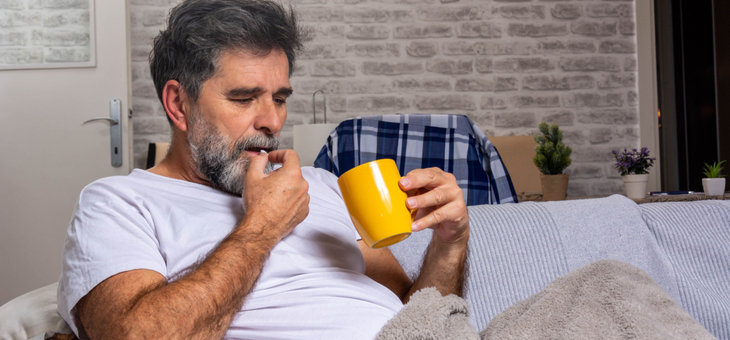A pill developed by US drug maker Merck to treat COVID infections could potentially cut coronavirus hospital admissions and deaths in half. But experts warn that it may not be the pandemic-buster we want it to be.
The drug called molnupiravir is designed to be taken after contracting COVID, to minimise the symptoms and reduce the likelihood of hospitalisation and death. It could represent a breakthrough in the fight against the virus.
In clinical trials, molnupiravir was given to half of a group 775 of people who were diagnosed with mild-to-moderate COVID-19 and who had symptoms within five days prior to the study being conducted. The other half were given a placebo.
The results showed that after 29 days just 7.3 per cent of those in the molnupiravir group were hospitalised and none had died. In the placebo group 14.1 per cent had been hospitalised and there were eight deaths.
Read: Two new drugs could turn the COVID tide
“More tools and treatments are urgently needed to fight the COVID-19 pandemic,” Merck says in a statement.
“With these compelling results, we are optimistic that molnupiravir can become an important medicine as part of the global effort to fight the pandemic and will add to Merck’s unique legacy of bringing forward breakthroughs in infectious diseases when they are needed most.”
The drug would represent the first treatment option for those diagnosed with COVID that can be taken at home without medical professionals. Currently, treatment options for those with the virus include the anti-viral drug remdesivir, the steroid dexamethasone and the anti-inflammatory tocilizumab.
These options work, but most need to be administered by IV by a medical professional in a hospital. These drugs are also primarily used to treat other conditions and using supplies on COVID-19 patients means others are going without desperately needed medication.
Having a COVID-specific option for home treatment would free up supplies of the other drugs, and relieve pressure on the healthcare system.
Read: Peptide-based drugs could reduce severity of COVID-19
But some experts were quick to downplay molnupiravir as the miracle drug that will end the pandemic.
“It does reduce the severity of illness but doesn’t prevent it entirely. But it can potentially keep a lot of people out of the hospital,” Dr Peter Hotez told RN Breakfast.
He says that while the drug is a welcome development, and could help reduce the load on healthcare systems around the world, getting vaccination rates up is what will ultimately end the pandemic.
“If you take the medicine it’ll reduce the likelihood you’ll go to the hospital,” Dr Hotez says.
“But it is no substitute for getting vaccinated. That is still the gold standard. That is what is going to save your life.”
Read: Pfizer and Moderna now available to over 60s
Vaccination rates are climbing fast in Australia, with Victoria hitting the 80 per cent first dose mark and NSW expected to hit 90 per cent first dose this week. NSW is also approaching the 70 per cent double dose benchmark when the state’s restrictive lockdown measures begin to lift.
Western Australia currently stands as Australia’s least vaccinated state with only 66.3 per cent having had their first dose and just over 48 per cent double dosed. Queensland is just marginally ahead on first doses at 67.3 per cent and also has 48 per cent of the population double jabbed.
Have you had either your first or second dose of a COVID vaccine? Do you think the government should be making an effort to secure supplies of molnupiravir? Let us know in the comments section below.
If you enjoy our content, don’t keep it to yourself. Share our free eNews with your friends and encourage them to sign up.

